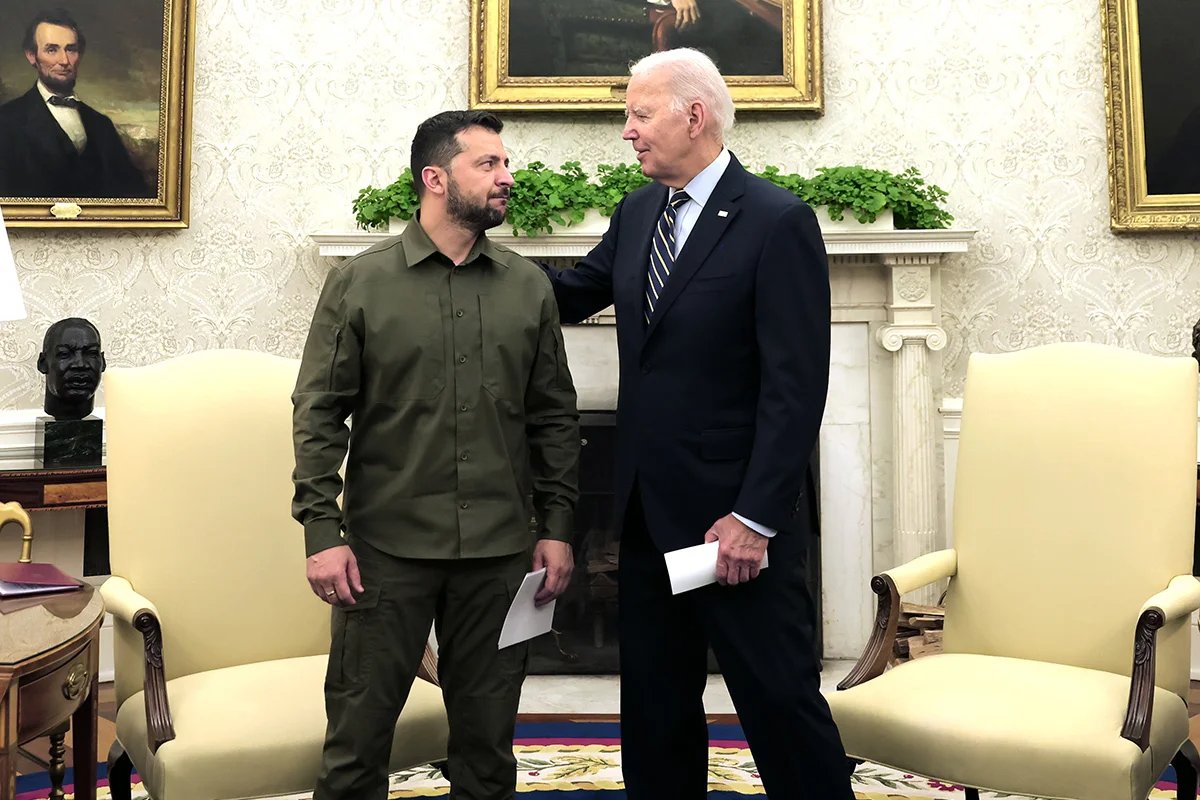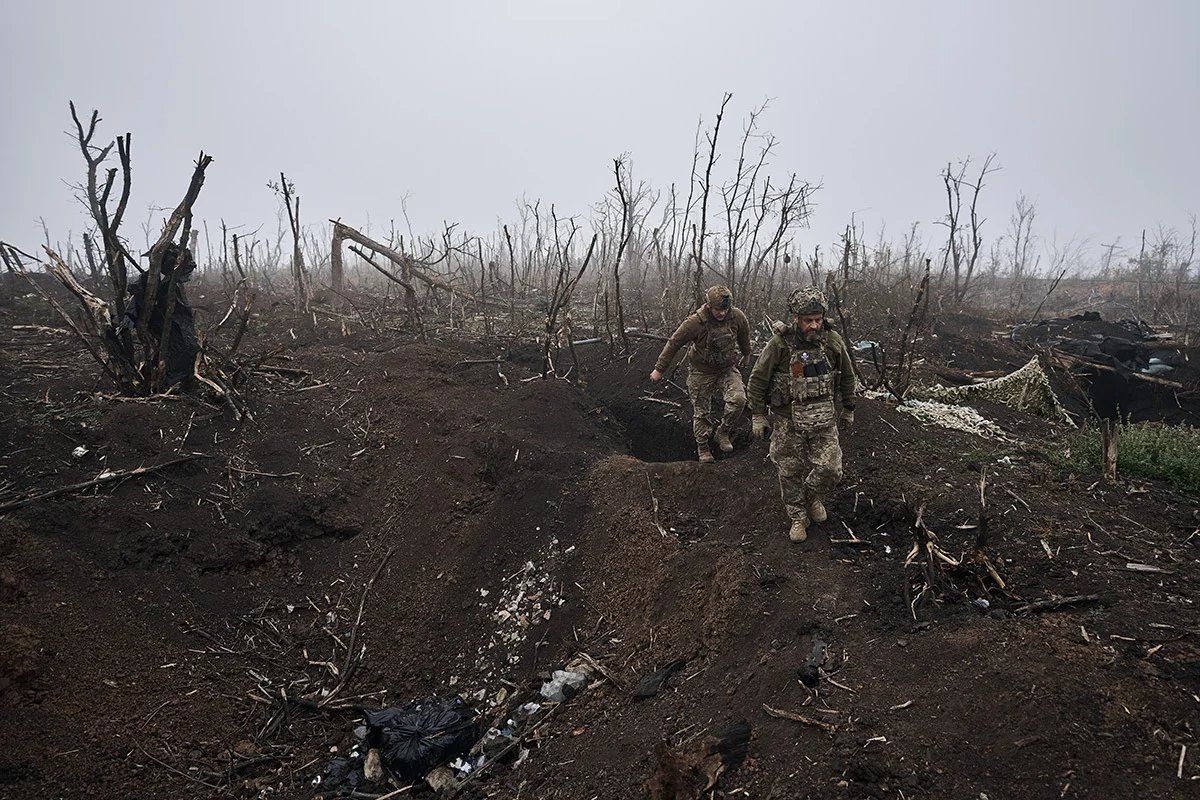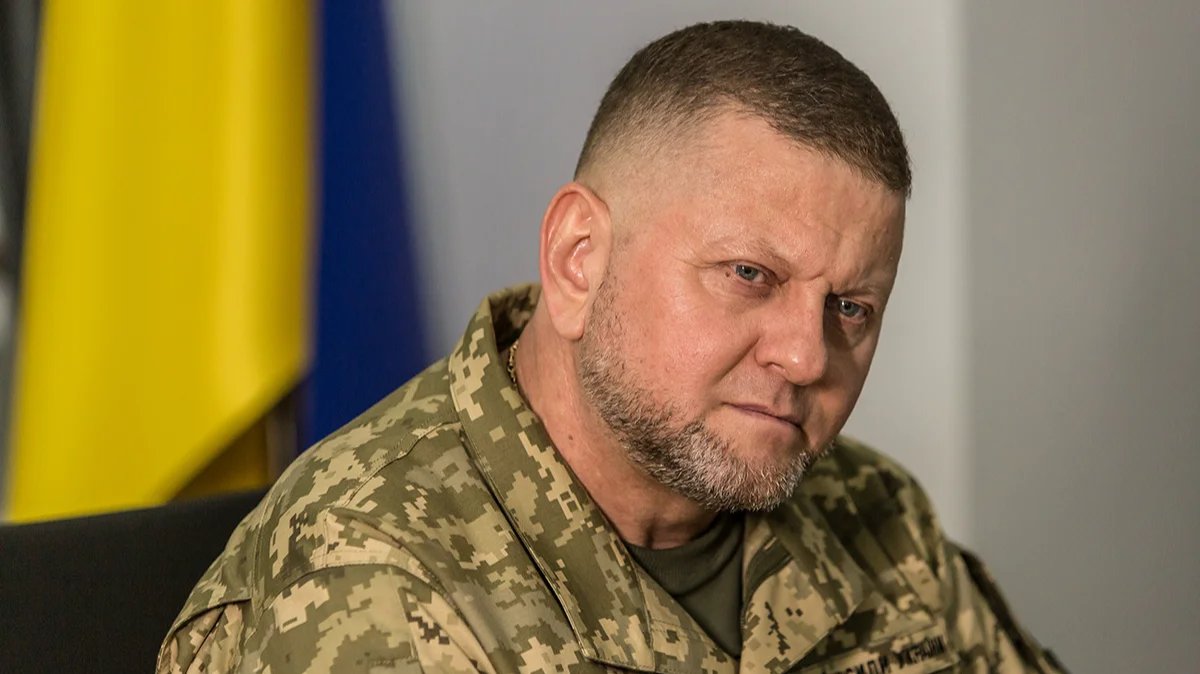Last September, Commander-in-Chief of the Armed Forces of Ukraine Valeriy Zaluzhnyi co-authored an article with Mykhailo Zabrodskyi, his current deputy, entitled “Prospects for running a military campaign in 2023: Ukraine’s perspective”.
It caused quite a stir. Many in Ukraine, especially civilians, attempted to read between the lines to find a more or less exact date for when the guns would fall silent. They also looked for clues as to whether the delivery of weapons from Ukraine’s Western partners, which had dwindled, would increase.
Politically engaged readers saw grounds for optimism in the two writers’ collaboration. While Zaluzhnyi is a close ally of Volodymyr Zelensky, Zabrodskyi once sat in Ukraine’s parliament as a deputy for former president Petro Poroshenko’s European Solidarity party, which has been fiercely opposed to Zelensky in the past. For the time being, at least, they appeared to have laid aside past grievances.
The article was addressed to the outside world, and to those in NATO member states and the EU in particular. Zaluzhnyi and Zabrodskyi wrote that equipping Ukraine with the appropriate weapons systems would be the necessary game-changer to tip the balance of power and would also stop the war from spreading internationally.
In December, three months after the article was published, Zaluzhnyi gave an interview to The Economist. Some of his remarks created headlines both at home and abroad — most famously, “I have no doubt they will march on Kyiv again” and “I can defeat the enemy, but I need weapons”.
The general said the Ukrainian strategy was to “hold the line of defence” and that returning to the position of 23 February, before the invasion, would only be only possible with an immediate delivery of weapons from Ukraine’s Western allies. “I need 300 tanks, 600–700 infantry fighting vehicles (IFVs), 500 howitzers,” he said. He stressed the urgency of his demands, and said that Ukrainians would continue fighting “until the end” even if they weren’t met, but that without the necessary weapons, “the consequences aren’t hard to predict”.
At the same time, Zelensky continued to broadcast far more optimistic and ambitious assessments of Ukraine’s military prospects, promising to push the enemy back to Ukraine’s 1991 borders with Russia. Their two divergent positions left the Ukrainian public wondering whether the president and his commander-in-chief differed in their understanding of reality.

US President Joe Biden meeting Ukrainian President Volodymyr Zelensky in the Oval Office in September. Photo: Julia Nikhinson / pool / EPA
Amid signs that Western support is now beginning to flag, two articles published by TIME magazine and The Economist last week have once again highlighted the tension between optimists and pessimists in Ukraine’s leadership. The TIME magazine piece investigated Ukraine’s military strategy and its diplomacy as well as tensions within Zelensky’s team, while The Economist spoke to Zaluzhnyi again and published a column he wrote giving a summary of what Ukraine needs to win the war.
The TIME article concludes that Zelensky feels betrayed by his Western allies and isolated in his belief in Ukraine’s victory. The war is frozen, US assistance is drying up and Israel has become the new priority. Power outages will hit the country harder this winter than last, and the population will blame corruption.
A Zelensky aide quoted in the article said that at least one minister and one senior general would need to be fired to win back public favour in light of the minimal progress made by Ukraine’s much-touted counteroffensive. If that minister was former defence chief Oleksiy Reznikov, who was fired in September, is it possible that the general will be Zaluzhnyi?

Ukrainian soldiers heading through a destroyed landscape in the morning fog near Bakhmut in October. Photo: Kostya Liberov / Libkos / Getty Images
In his interview with The Economist, Zaluzhnyi did admit to some miscalculations. He said, for example, that he had underestimated the Kremlin’s determination: “Russia has lost at least 150,000 dead. In any other country such casualties would have stopped the war.” He also admitted he had been wrong about Russia’s second advance on Kyiv, which never happened.
Quite the contrary, in fact. The war is now in a “positional” phase, Zaluzhnyi said, with the temporary stability created affording Russia the opportunity to rebuild its military power “eventually threatening Ukraine’s armed forces and the state itself”.
Unlike the one last year, in this interview Zaluzhnyi made no specific requests to Ukraine’s Western allies for specific weaponry, though he did caution that the longer the war goes on, the harder it will be to sustain. “We need to look for this solution. We need to find this gunpowder, quickly master it and use it for a swift victory. Because sooner or later we are going to find that we simply don’t have enough people to fight.”
The gunpowder metaphor can also be interpreted as a warning that short of a miracle or finding a secret weapon that can significantly shift the balance of power on the battlefield, it’ll soon be Western soldiers in the trenches, given Russia’s brutal determination.
The only similarity between the two recent articles is that they are both still obviously intended for a NATO and EU audience. Otherwise, they are dramatically different in almost every respect. The TIME article might be summed up thusly: America is making it clear to Zelensky that he is responsible for the military and political crisis at home. Whereas The Economist piece says: If the world doesn’t help Ukraine win on its own territory, Ukraine will cease to exist, and the world will end up paying the price.
Shortly after the TIME article ran, Zelensky’s former advisor Oleksiy Arestovych announced he planned to run for president and promised to begin peace talks with Russia if elected. Such a prospect is currently inconceivable as Zelensky has disavowed any kind of negotiation with the Russian occupiers, and the Kremlin has refused to negotiate with Kyiv as long as Zelensky remains in power.
Join us in rebuilding Novaya Gazeta Europe
The Russian government has banned independent media. We were forced to leave our country in order to keep doing our job, telling our readers about what is going on Russia, Ukraine and Europe.
We will continue fighting against warfare and dictatorship. We believe that freedom of speech is the most efficient antidote against tyranny. Support us financially to help us fight for peace and freedom.
By clicking the Support button, you agree to the processing of your personal data.
To cancel a regular donation, please write to [email protected]

